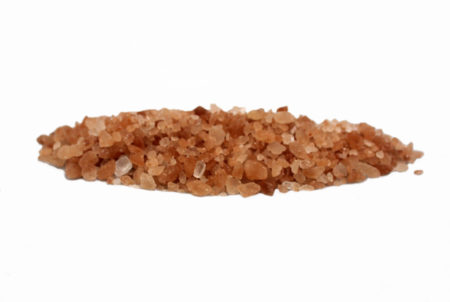A few weeks ago, I was leading a nutrition workshop at Athleta and a woman in the audience asked me about salt. She was someone who craves it and was looking for ways to eat less of it while not sacrificing the flavor of her food. That question inspired me to put together these healthy alternatives to table salt.
I totally understood this woman’s question, but here’s the thing about salt that most people don’t realize.
Salt isn’t necessarily bad for you. In fact, sodium is a required nutrient for maintaining good health.
In a nutshell, salt controls the body’s fluid balance, blood pressure and how the nerves and muscles function.
The problem with salt and why most people assume it’s unhealthy is that most of the salt in our food- especially packaged and prepared or restaurant food — is refined table salt which is ultra-processed and stripped of all its nutrients — in other words, iodized table salt. This is the salt that contributes to high blood pressure, heart disease weight gain and other health problems.
If you’re a salt-lover, clear your cupboards of any and all table salt and try these 7 healthy alternatives to table salt:
Sea salt: Sea salt is unrefined and full of trace minerals that get absorbed into the food. There are several different varieties, colors and textures of sea salt that are intended for different uses. A little goes a long way and you’ll use less of this high-quality salt but appreciate the flavor it imparts on your food.
Coconut aminos: Coconut sap blended with sea salt, this is an amino acid-rich condiment that works great as a substitute for soy sauce
Umeboshi plum vinegar: Made from the leftover brine of pickled umeboshi plums, this is best on anything really but try it over steamed veggies or in salad dressings
Tamari: Another healthier alternative to soy sauce, tamari is wheat-free
Bragg’s Liquid Aminos: Similar to coconut aminos, Bragg’s is non-GMO soy-derived liquid protein concentrate
Dulse or Kelp: Iodine, mineral and nutrient-rich sea vegetables can double as salt when sprinkled on salads, soups or vegetables. Dulse can be toasted as a salty snack.
Nutritional Yeast: De-activated yeast that is a good source of B-vitamins and folic acid. It can be used in place of salt and vegans often depend on it to impart a cheese-like flavor to food.
Do you have any favorites I might have missed?




Leave a Reply